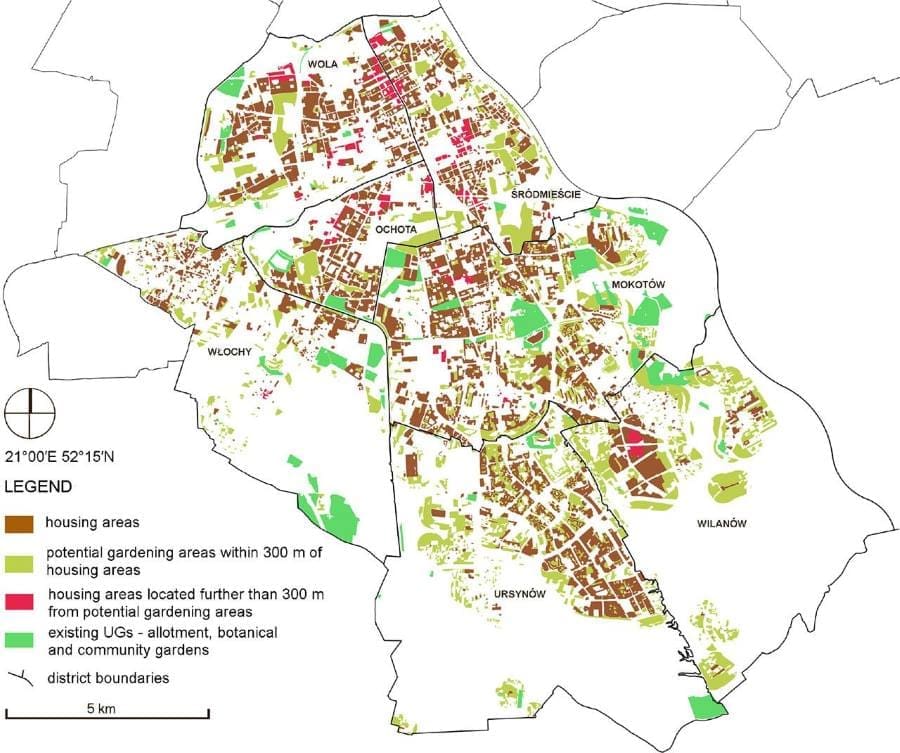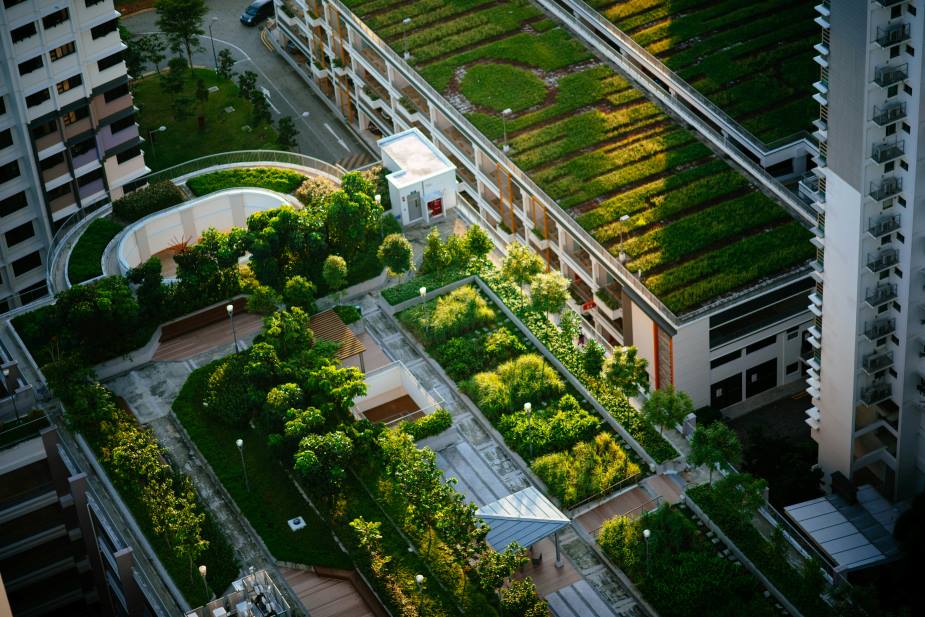Summary:
Urban gardening is emerging as a powerful tool in the effort to adapt cities to climate change, according to a new study focusing on Warsaw. Researchers from SWPS University, the Warsaw University of Technology, and the Warsaw University of Life Sciences examined how urban garden communities contribute to both environmental and social resilience in the Polish capital. Their findings are published in Miscellanea Geographica under the title “Urban garden communities’ social capital as a support for climate change adaptations – a case study of Warsaw.”
The study highlights the wide range of climate benefits associated with urban gardening, including reduced air pollution, improved rainwater retention, and mitigation of the urban heat-island effect. The researchers also emphasize the importance of social capital, noting that successful gardens often depend on motivated leaders, community ties, and shared values around ecology and education. Over 250 interviews were conducted to identify motivations, organizational structures, and opportunities for expanding such gardens in Warsaw.
With nearly 1,900 hectares of potential green space located near residential areas, the researchers see significant room for growth. They recommend that local authorities incorporate urban gardening into spatial planning policies to strengthen community resilience and environmental sustainability in the city.

Urban gardening mitigates climate change
Does urban gardening in Warsaw have potential and how to develop related initiatives? Researchers from the SWPS University, Warsaw University of Technology and the Warsaw University of Life Sciences investigated this issue.
The role of urban gardening in the development of green areas and, thus, in improving adaptation to climate change in urban areas has been discussed in many scientific works. Urban gardens contribute to better carbon dioxide absorption, air pollution reduction and the mitigation of the urban heat-island effect. They also allow residents to use organic waste, which helps to reduce GHG emissions and conserve energy. Other significant benefits include improved water efficiency, reduced flood risk and better rainwater infiltration and retention.
The development of urban gardening depends on social factors. Such activities affect the creation of social capital, and some studies indicate that this is not only about gardening, but also about community building. The motivations of urban gardeners vary. The most important ones are: reconnection to nature, positive contribution to the environment, social relations and mutual learning between gardeners, says Piotr Majewski, PhD, a professor at SWPS University, cultural expert and sociologist from the SWPS University Faculty of Humanities in Warsaw, co-author of the study.
A city with gardening potential
Researchers from the Warsaw University of Technology, the SWPS University and the Warsaw University of Life Sciences analysed whether the Warsaw community had the potential to develop urban gardens to foster adaptation to climate change. In addition to conducting the scientific literature review, they characterized local gardeners and their initiatives, and asked them about the function of gardens not only in the context of environmental protection, but also community building. A total of over 250 interviews were conducted for the purposes of the study.
The results were described in a published in Miscellanea Geographica.
The capital of Poland offers residents great opportunities to develop gardening activities. The researchers identified areas that could potentially serve as places for establishing new recreational, social and educational gardens. In total, such areas (meadows, orchards, parks, housing estate greenery, wasteland and post-industrial areas) cover 1,864 hectares. They are located 600 metres or less from residential development areas, and only few of them are further than 300 metres away.
Urban gardening brings together all social groups
It turns out that urban gardening is widespread in Warsaw. This social movement includes individual groups of residents, more or less formal teams, associations and foundations, as well as public institutions such as schools and cultural institutions.
By engaging in urban gardening, residents want to create a friendly life space around them that will ensure their well-being, contact with nature, a sense of responsibility for the environment, help to build social bonds and exchange knowledge.
On average, Warsaw gardens associate 10-15 people who are the core of the group. There are also people who work in the gardens occasionally, as well as visitors who simply spend their free time there. Members of all social groups can be found in the gardens, although – as the researchers admit – senior citizens (usually women with higher education) and families (middle class with higher education) are the most active.
The leaders of such gardening groups are usually institutional employees (employed in institutions where gardens are created), social activists (both amateur and professional ones, e.g. affiliated with NGOs), as well as “hero” activists who are tirelessly committed urban gardens.
Ecology and education
According to the leaders, the main purpose of urban gardening is not food production, but pro-ecology activities (in the broadest sense of protection of biodiversity and management of biowaste), education, and building an active, cooperative society. Gardeners also mention therapeutic functions of gardens.
The potential and wide scale of urban gardening allows us to conclude that the system of community gardens should also be considered as a tool to support climate change adaptation solutions in urban policies in spatial planning – provided that they are considered an important link in the urban green infrastructure system, Majewski believes.
The scientists emphasise the need to better explore where the boundaries lie when urban gardening becomes relevant for climate change adaptation, and what risks and challenges this poses for gardening activists, and for city authorities and policymakers.
They recommend the introduction of systemic support for urban gardening by administrative authorities, treating urban gardens as an important aspect of spatial management, and promoting them among residents as an important branch responsible for the environment and climate.
Journal Reference:
Lasocki, Maciej et al. ‘Urban garden communities’ social capital as a support for climate change adaptations – a case study of Warsaw’, Miscellanea Geographica 29, 2, Sciendo (2025). DOI: 10.2478/mgrsd-2025-0005
Article Source:
Press Release/Material by SWPS University
Featured image credit: Chuttersnap | Unsplash




